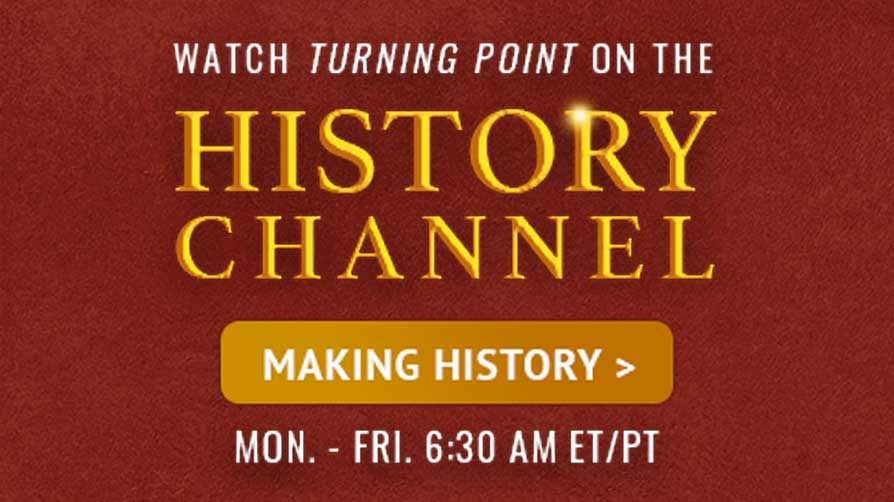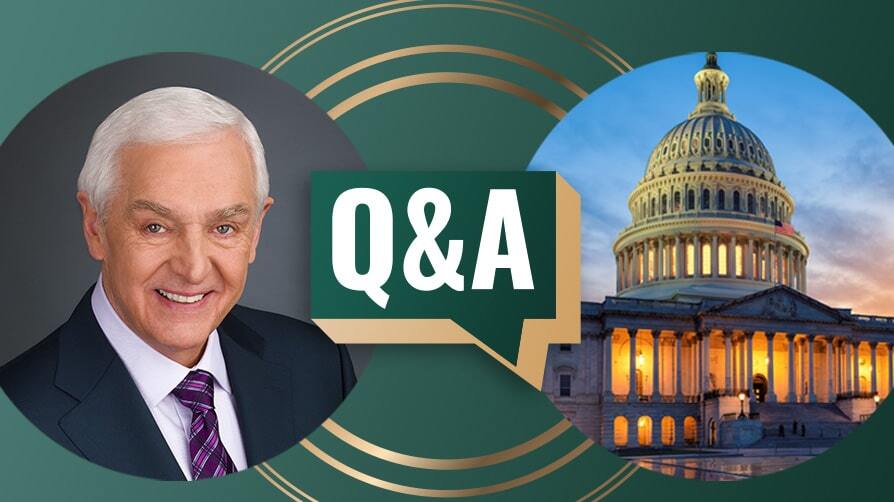Lord, Should I Buy This?
In his book Buried Treasures of Texas, W. C. Jameson told of a wagon train that crossed North Texas in the 1800s. Seventeen wagons of pioneers from the East wanted to start a new life in California. Just as they entered Clay County, a party of Comanches attacked them with rifles and well–aimed arrows. The wagons formed a circle as the pioneers grabbed their rifles and sought cover. The raiders were driven off but later regrouped and attacked again.
One man—his name is lost to history—hid between trunks in one of the wagons, and during a lull in the fighting he jumped out and ran away. From a distance, he watched the wagons burn as all the pioneers were scalped. The lone survivor nearly died of thirst, but he found a damp spot in the ground where he began digging with his hands. Soon he had some muddy water to drink, but he found something else. Several gold nuggets were buried in a rotten pouch. He surmised that someone else had fled the same route, found the damp earth, and hidden the saddlebags of gold.
The man carried away as much gold as he could. But it was too heavy, and he buried some of it again, marking the spot. As he continued traveling, the remaining gold was still too heavy, so he stopped several more times to bury and mark his treasure. Three days later, he staggered into a little town and shared his story. He had only a few small nuggets left. When the man was well enough to go back for his gold, he was never able to find it. Disappointed and frustrated, the man settled in Wichita Falls and died distraught several years later.1
It’s amazing how gold, silver, houses, land, electronics, and the material accumulations of life can bog us down, frustrate us, and even ruin our life. How important to understand the priorities of life! Nothing is really ours. We’re travelers on the way to heaven. If God gives us some gold, it doesn’t belong to us. If we prosper, it’s not for our selfish benefit. If we suffer loss, it’s not unknown or unexpected to God.
The important thing is learning to hold our possessions loosely, to keep them under God’s control, to be generous, and to guard against hoarding. When our pockets are too full, it hinders us. Managing all we’ve accumulated becomes a full–time job. We can become so full of material concerns that it’s difficult to receive the true abundance God wants to bestow.
What Jesus Said About Money
Jesus warned about this on multiple occasions.
In His Sermon on the Mount, He said, “Do not lay up for yourselves treasures on earth, where moth and rust destroy and where thieves break in and steal; but lay up for yourselves treasures in heaven” (Matthew 6:19–20). I don’t believe He was telling us it’s wrong to save for the future or have bank accounts. He was saying that money and the acquisitions of life should never dominate our affections. He continued, “No one can serve two masters…. You cannot serve God and mammon” (6:24). If God occupies the throne in the middle of our heart, then we’ll be able to keep material wealth—or its absence—in a healthy perspective.
A few chapters later in His Parables of the Kingdom, Jesus talked about the sower who cast out his seed. Some landed among weeds and thorns. The seed sprouted but was choked by the briars. The Lord explained, “Now he who received seed among the thorns is he who hears the word, and the cares of this world and the deceitfulness of riches choke the word, and he becomes unfruitful” (Matthew 13:22).
Don’t be so absorbed in the material that you can’t receive the spiritual.
Read that again! That’s an apt picture of many Christians in the western world. They’re so distracted by the things they’ve accumulated (and the heavy burdens connected with them) that they have little energy left for the work of the kingdom. They have too much to hold on to.
A few chapters later, Jesus brought up this subject again, this time in connection with a rich young ruler who wanted to follow Him as His disciple. Jesus told him to sell all his possessions and give away his money to the poor, and then he could become a disciple. “But when the young man heard that saying, he went away sorrowful, for he had great possessions” (Matthew 19:22). Whenever we read this story, I think a lot of us have a nagging question. Does Jesus really want us to liquidate our bank accounts, sell everything we have, give it all away, and live in poverty?
No, not necessarily. This incident happened as Jesus was on His way to be crucified. These were the last days of His earthly ministry. He knew that after His death, persecution would descend upon the Early Church and the believers would be driven away to the four winds, bearing the Gospel to all the world. In this case, Jesus knew it would be better for the young man to divest himself of all his financial ties.
It’s the same advice Paul gave the Corinthians who were facing persecution: “Those who… buy things should not be absorbed by their weeping or their joy or their possessions. Those who use the things of the world should not become attached to them. For this world as we know it will soon pass away” (1 Corinthians 7:30–31, NLT).
That’s what I want to tell you in this article. If you buy something, don’t be absorbed by it. If you use the things of this world, don’t become too attached to them. God has more for you. He has a richer future for you. He has an inheritance for you. He promises an abundant life, which goes far beyond your financial balance sheet. We should hold things loosely and avoid having too much to hold on to. Don’t be so absorbed in the material that you can’t receive the spiritual.
What We Should Do With Our Money
How do we maintain the right balance between our financial balance sheet and our faith?
First, figure out if you’re living among the thorns and if the cares and concerns of your possessions are choking your spiritual growth. Take a piece of paper and draw a circle, representing your life. In the center of the circle, draw a smaller circle. Take your primary possessions and, using symbols, scatter them between the two concentric circles. Draw a small house for your residence. Use a dollar sign for your bank accounts. Draw a small car for your vehicle, and so forth.
Now, see if you can truthfully write the name of Jesus in the small circle. Is He really the hub of your life? Is He Lord of all the rest? Does everything sincerely revolve around Him? Are you using all you have for His glory? And one last question: Are you perfectly willing to erase everything in your drawing except for Him if that’s His will?
Second, see if there’s anything in your drawing that needs to be under His control in a greater way. Can you better use your home for His glory? What about your car? What about your money? Are you really laying up treasure in heaven? Are there things you need to sell or give away?
Third, before adding anything more to the circle—that is, before making another big purchase—pray about it earnestly. Sometimes we need to upgrade some area of our life, but the Bible also tells us, “And having food and clothing, with these we shall be content” (1 Timothy 6:8). Are you content with what you have? It’s a good idea to even pray about small purchases: “Lord, should I buy this?” That should become a standard prayer in our life.
What’s holding you back from receiving all that God has for you? Don’t be guilty of packing your pockets so full of gold that you can’t make the journey set before you. And don’t be so frustrated at losing your treasures that you worry yourself to death.
What’s holding you back from receiving all that God has for you?
The Bible sums it up like this: “Command those who are rich in this present age not to be haughty, nor to trust in uncertain riches but in the living God, who gives us richly all things to enjoy. Let them do good, that they be rich in good works, ready to give, willing to share, storing up for themselves a good foundation for the time to come, that they may lay hold on eternal life” (1 Timothy 6:17–19).
This article originally appeared in the November 2019 issue of Turning Points devotional magazine, a ministry of Turning Point with Dr. David Jeremiah.
Sources:
1W. C. Jameson, Buried Treasure of Texas, Little Rock: August House Publishers, Inc., 1991), 88–91.
Featured
Most Popular
I need help

Your response has been received, and we will be praying for you.
Look for answers to some of the most common questions in the weeks ahead.










